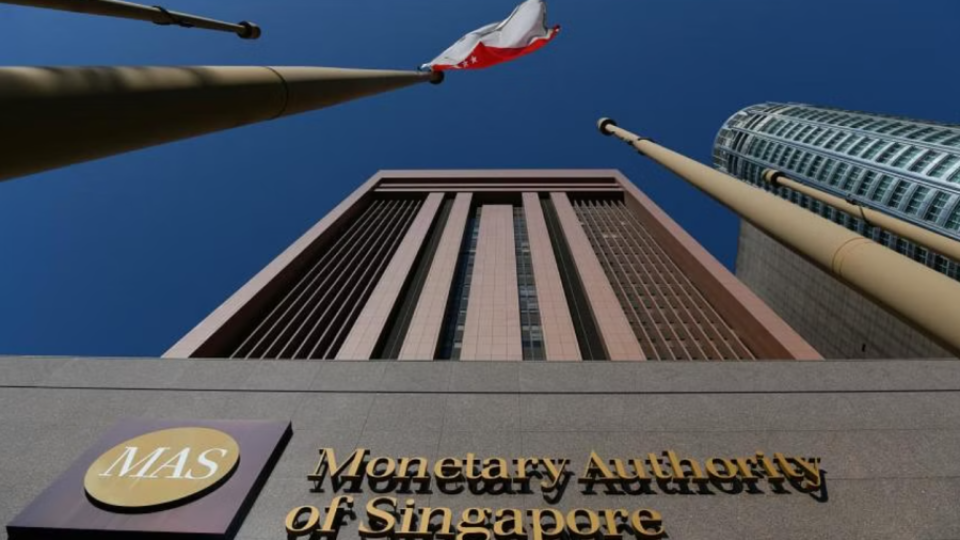September 22, 2023
SINGAPORE – Four insurers have been named as “systemically important” to Singapore, in a new move that will subject them to higher regulatory standards and closer supervision, given that their collapse would significantly affect the country’s economy.
They are AIA Singapore, Income Insurance, Prudential Assurance Company Singapore and Great Eastern Life Assurance Company.
The Monetary Authority of Singapore, in unveiling its first list of domestic systemically important insurers (D-SII) on Thursday, said the requirements will kick in on Jan 1, 2024.
Its deputy managing director for financial supervision Ho Hern Shin said: “Enhancing the D-SII framework is part of MAS’ continuous efforts to strengthen the resilience of Singapore’s financial sector.”
Currently, the framework is in place for seven domestic systemically important banks: Citibank, DBS, UOB, OCBC, Standard Chartered, Maybank and HSBC.
Under the framework, the four insurers will be subject to additional supervisory measures, which largely mirror those applicable to domestic systemically important banks.
Besides more intensive supervision, they will have to meet higher capital requirements to buffer losses.
They must also have a recovery and resolution plan, as well as robust management information systems.
A recovery plan would bolster an insurer’s ability to restore its financial strength and viability in a period of distress, said MAS, while a resolution plan would enhance the regulator’s ability to ensure the timely and orderly restructuring or exit of an insurer if it fails. This will minimise the impact to the financial system and economy.
Given their current capital positions, the four insurers are expected to continue meeting the capital requirements under the framework with adequate buffers.
The four insurers were identified as systemically important based on four factors: Size; interconnectedness with other parts of the financial system and the economy; substitutability, which refers to the ability to be replaced; and business, structural and operational complexities.
MAS uses the share of Singapore Insurance Fund (SIF) total assets and share of SIF gross written premiums as measures of an insurer’s size.
Basically, the larger the firm and its share of domestic activity, the higher the likelihood that its failure or distress will negatively affect the domestic economy and financial markets.
The thresholds for each indicator will be carefully adjusted to take into consideration annual industry data, though MAS does not disclose the thresholds used.
The regulator declined to comment on why Singlife, which is one of the Government-approved insurers providing the Medishield Integrated Plan, was not deemed systemically important.
MAS said it will revise the list of systemically important entities following each annual assessment.
In response to a public consultation on the enhanced framework, which closed on Nov 30, 2022, MAS said the framework does not aim to assess the probability of an insurer’s failure.
Instead, it focuses on identifying insurers whose distress or disorderly failure would cause significant disruption to Singapore’s financial system and economic activity.
The framework will take into account two years of data before an insurer is designated as a D-SII or removed as one.
Once an insurer has been designated as a D-SII, it will continue to be one unless otherwise notified by MAS.
MAS will monitor developments in the financial system as well as international assessment methodologies to ensure that the framework remains appropriate, and will make refinements when required.
Singapore adopts a risk-based capital framework, where the capital an institution must hold is dependent on the risks associated with its financial assets and operations.
It covers risks related to a financial institution’s credit or assets, liquidity, technology and reputation, to name a few.
Also taken into consideration are an institution’s risk management systems and compliance, among other things.
In its feedback to 2022’s public consultation, marine insurer Gard Marine & Energy pointed out that using an insurer’s total asset size as a gauge to assess whether it is systemically important might penalise highly capitalised firms.
Income Insurance voiced similar concerns during the public consultation.
Policy liabilities, which reflect an insurer’s financial obligations with respect to the insurance policies it has issued, would be more reflective of the degree of disruption in the event of failure, it suggested in its feedback in 2022.
Mr Dennis Tan, chief executive of Prudential Singapore, said on Thursday that the framework is a welcome step that will boost the stability of the insurance industry.
Great Eastern Group CEO Khor Hock Seng noted that the group provides vital protection to many customers in the market.
“Our ability to meet a higher capital requirement by MAS also demonstrates that we can operate viably in more challenging scenarios and situations,” he said.
Income Insurance CEO Andrew Yeo said its practices today put the firm in good stead during market volatility.
AIA Singapore said it does not expect any major operational impact from the move, adding that it is able to adequately meet the regulatory capital requirement and has established a recovery planning process.

